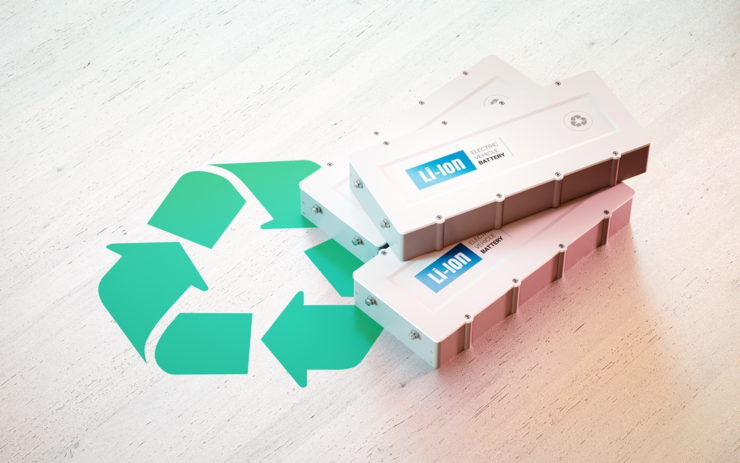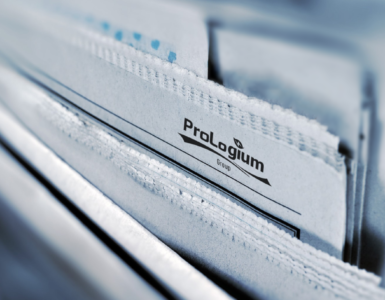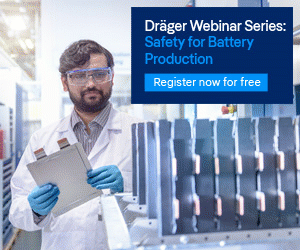SK ecoplant – A new world will be opened by batteries – What is the final key to taking the lead?.
The reason why the world is shaken by the situation of a small island nation in the South Pacific is ‘batteries’. Let’s take a closer look at ‘waste battery recycling’, which is attracting attention as the last variable that will change the game in the future era when the whole world is newly connected within the battery ecosystem.
There is a country called the Democratic Republic of the Congo. It is a different country from Congo, which has a simpler name. In the past, I used the name Zaire, but since the name I used when participating in the 1988 Seoul Olympics is also Zaire, I think some people remember this name.
Anyone who is interested in world history may remember that during the imperialist invasions of the past, Belgium carried out very harsh invasions and plunders in the region, which drew severe international criticism.
🔥 What about we co-host a webinar? Let's educate, captivate, and convert the battery economy!
Batteries News is the global go-to online magazine for the battery industry, we can help you host impactful webinars that become a global reference on your topic and are an evergreen source of leads. Click here to request more details
To pick a relatively recent big event, there was also a case of getting caught up in a war called the ‘Congo War’ amidst the rapidly changing international situation since the end of the Cold War in the 1990s. It is a relatively unknown war that took place in Central Africa, but it was also nicknamed the World War in Africa because of its large scale and casualties in the millions.
However, in the 2020s, the situation in this unfamiliar country became closely related to the Korean economy. It’s because of the battery.
How did batteries become mainstream?
Currently, the most useful batteries are lithium-ion batteries. In the future, as the proportion of solar and wind power generation increases due to climate change issues, more and more people will want to use batteries. First of all, in the near future, many machines that currently run on oil or coal will be replaced with those that use electricity, so batteries are needed to store that electricity.
In addition, since solar power generation and wind power generation are difficult to utilize when sunlight or wind is weak, energy storage devices that store electricity in advance in large-capacity batteries and use them must be developed together. If a city were to use 100% sunlight for electricity, it would not be possible to generate electricity with sunlight at night, so the many lights that create the night view of the city should be lit only with electricity stored in batteries. How many batteries would you need if such a world actually came? It is because of this prospect that battery-related companies are always a hot topic in the Korean stock market, and financial companies that want to invest in countries such as Korea, China, and Japan always look at battery-related industries as investment targets.
.
A global economy powered by batteries
In order to make a lithium-ion battery, various sub-materials other than lithium are required. In particular, in order to make the battery operate stably for a long time, several metal elements must be used. In particular, the method that Korean companies have developed well so far is the method of using three metals: nickel, cobalt, and manganese together with lithium. Commonly in the industry, it is also called ‘NCM battery’ after the first letters of nickel, cobalt, and manganese.
Among the metal materials used in NCM batteries so far, the most important material has been cobalt. This is because cobalt’s share in the price is high. And the country with the highest cobalt production in the world is none other than the Democratic Republic of the Congo. The Democratic Republic of the Congo is responsible for more than half of global cobalt production.
As a result, the price of cobalt always fluctuates depending on how the situation in the Democratic Republic of the Congo goes. When a battle suddenly breaks out near a cobalt mine in the Democratic Republic of the Congo, the price of cobalt rises, and the cost of producing NCM batteries that use cobalt as a material naturally increases. If this happens, it will be difficult for the Korean battery industry, which makes and sells NCM batteries, to make money. The stock market is struggling, the exchange rate is rising, and the outlook for the Korean economy is darkening. The outcome of the battle in the faraway Democratic Republic of the Congo crosses the Indian Ocean and affects the Korean economy, which is how the global economy moves in the 2020s.
As such, the global economy is being newly connected and rapidly expanding due to batteries. To take another example, there is a country called New Caledonia among the small island countries in the South Pacific. In the past, many Koreans did not even know that such a country existed. New Caledonia is also known by its English name, New Caledonia, and there must have been people who knew only about the beautiful and leisurely tourist destinations of the South Pacific or the remote areas in TV entertainment programs. However, the situation in the country is currently receiving a lot of attention from those who are interested in the Korean financial market, especially the stock market. This is because there is a mine in New Caledonia where nickel, which is essential for NCM batteries, is mass-produced along with cobalt. In fact, news that a domestic company producing battery materials is investing in New Caledonia is often published in newspaper articles, and recently, news was reported that a representative of a Korean company producing battery materials had a meeting with the president of New Caledonia.
As such, the global economy is being newly connected and rapidly expanding due to batteries. To take another example, there is a country called New Caledonia among the small island countries in the South Pacific. In the past, many Koreans did not even know that such a country existed. New Caledonia is also known by its English name, New Caledonia, and there must have been people who knew only about the beautiful and leisurely tourist destinations of the South Pacific or the remote areas in TV entertainment programs. However, the situation in the country is currently receiving a lot of attention from those who are interested in the Korean financial market, especially the stock market. This is because there is a mine in New Caledonia where nickel, which is essential for NCM batteries, is mass-produced along with cobalt. In fact, news that a domestic company producing battery materials is investing in New Caledonia is often published in newspaper articles, and recently, news was reported that a representative of a Korean company producing battery materials had a meeting with the president of New Caledonia.
The process of transforming the world economy by intertwining important new technologies with the problem of mineral resources to solve urgent problems such as climate change is sometimes more complicated than expected. When the price of cobalt rises due to the chaos in the Democratic Republic of the Congo, companies that excel in fields such as LFP (Lithium Iron Phosphate, LiFePO4) batteries, which can make lithium-ion batteries relatively free of cobalt, suddenly become promising, and conversely, peace in the Democratic Republic of the Congo. The appearance of the world economy these days is that the stock prices of automobile companies that have signed contracts with battery companies that use a lot of cobalt often jump together when .
.
The last variable that will change the game is ‘battery recycling’
In this situation, there is also a prospect that the potential of countries with both resources and technology, such as the United States and China, can be demonstrated more strongly. This is because countries that have experienced mining and processing various minerals in their own country and have enough experience and technology will be able to effectively develop mines scattered around the world. In particular, the United States is leading the electric vehicle industry, and China is the number one country in battery production, so it is advantageous to connect and grow the mineral industry and the battery industry.
Then, what choice should a resource-poor country like Korea make? If we proceed in this way, the profits obtained from the battery technology developed with great difficulty may eventually be handed over to other countries due to resource and material problems. Is there any other way other than accepting such a future?
Fortunately, there is still one technology that could change the way battery materials run the global economy. It is none other than ‘battery recycling’ technology.
A battery is a product with a lifespan. Anyone who has used a cell phone or portable computer has probably experienced the battery’s capacity gradually diminishing as it is repeatedly charged and discharged. Batteries have no choice but to be thrown away at some point after using them.
In particular, if an electric vehicle runs 100 km on a single charge and then runs out of battery capacity and can run only 50 km, the driver cannot use the product for the purpose he or she originally wanted. Because of this, even if the battery still has half the remaining capacity, there is no choice but to throw away the product.
In a future society where a significant amount of the world’s electricity needs to be stored in batteries, the amount of waste batteries discarded at the end of their lifespan will be enormous. If you give up all these waste batteries, even if there is a renewable energy technology that prevents climate change, you will not be able to use it in a short time.
No matter how much cobalt is abundant in the Democratic Republic of the Congo and nickel is abundant in New Caledonia, the mines will soon run out to cover all the batteries used and discarded around the world.
To overcome this problem, it is eventually necessary to develop technology to improve the performance of waste batteries so that they can be reused, or to mobilize technologies that can be used by extracting components such as lithium, cobalt, and nickel from waste batteries. In other words, if someone develops an efficient waste battery recycling technology, that person is like owning a cobalt mine or a nickel mine.
Furthermore, when the mines are mined, the bottom is empty, leaving only empty tunnels, but the recycling plant can continue to receive waste batteries discarded around the world and endlessly create materials for new batteries.
In the future, when waste battery recycling technology matures sufficiently, the price of mineral materials for batteries will stabilize and not fluctuate, and then there may be an opportunity to stabilize the political turmoil in some countries fighting for their lives over minerals and mines.
Waste batteries are the ‘gold mine of the future’… need constant attention
To develop a technology to obtain new battery materials from waste batteries, a country that has already developed battery production technology is advantageous. In addition, it is possible to predict that countries with advanced chemical technologies for processing recycled products can lead the way in recycling waste batteries.
Even regions like Korea, where separate collection of recyclables is developed and where recycling cultures in various fields are established to some extent, can be seen as regions with advantages in the field of recycling waste batteries. As early as the 1980s, the term ‘urban mining’ was used in Japan, and it was popular to say that recycling discarded electronics in Japan’s cities would make the technology as useful as mines in resource-rich countries.
In Korea, as the battery industry accounts for a significant portion of the country’s economy, the news of waste battery recycling technology in the stock market has already caused stock prices of some stocks to fluctuate.
Looking at the situation in the field where industry and environmental issues are intertwined and linked to the economy, countries that utilize these recycling issues more skillfully stand out. European countries have a high level of environmental industry and advanced chemical technology, but the battery industry is often relatively behind.
In a situation where American companies are strong in electric vehicles and Asian companies are strong in lithium-ion batteries, a key component of electric vehicles, European companies may decline in the future.
In this situation, Europe is promoting a strong waste battery recycling policy. It is intended to operate laws and systems that require the collection, treatment, and recycling of used batteries to be compulsory.
This creates room for active participation by leading European companies in the environmental sector. If things go well, this system may be an opportunity to develop innovative technologies in the hands of European companies with strong recycling technologies. If so, Europe will be able to achieve great results, such as discovering gold and silver mines in discarded waste batteries.
Climate change and environmental protection issues are not problems that can be simply explained the more we look at the intertwined causes and effects. It is difficult to easily conclude that only a country or region needs to be persecuted by accusing it of being a climate villain, and it is difficult to quickly conclude that one path is the best way to solve all problems. A solution that looks good today may look bleak tomorrow.
The constant effort to find the answer in the tangled relationship will eventually make progress slowly. If so, wouldn’t it be necessary for a longer-term and continuous interest in waste battery recycling technology from the current situation in Korea?
READ the latest Batteries News shaping the battery market
A new world opened by batteries, the last key to take the lead?, September, 2023








